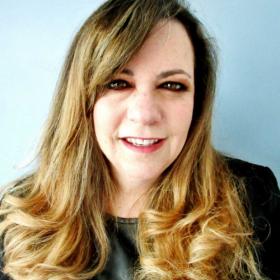Our Words Matter
Author

Remember weekly vocabulary quizzes from high school? The goal of those was to prepare you to take the SATs or ACT or to do well in college. I’ll bet that most of us have never used the words that were memorized again. As a former high school English teacher, I can validate that from my own experience. They weren’t part of our everyday, working vocabularies. And frankly, it really didn’t matter if you knew them or not.
Now think about all the new terms we use because they reflect the times we are living in. COVID-19. WFH. Doomscrolling. PPE. What about cryptocurrency? NFTs? We are constantly adding to our working vocabularies. It may take some effort (I may never understand how cryptocurrency works) but it’s necessary to keep up with our everchanging world.
And yet, people are extremely hesitant or even scared to use new words that describe a person’s diversity. Cis. Trans. Non-binary. LGBTQIA+. POC. QPOC. Ally. Latinx. Neurodiverse. Differently-abled. No one wants to get canceled (another new term!) for being racist or sexist or ableist. Those of us who work in human resources most likely have had to mediate or take action when words are used to hurt or take power away from another person or group.
But there is a difference between intent and ignorance. Ignorance is easily cured. And you can start yourself by using the appropriate terms when you talk about diversity.
Done correctly, you will be role-modeling respect and empathy. You will be enabling people to bring their authentic selves to work. It may be hard at first to change your language because you may also have to change how you think or use terms you might not agree with. That’s all right — this can’t and shouldn’t be about you.
Consider this: don’t we all just want to be seen and accepted for who we are? It is a small kindness to start with using the appropriate terms for describing people’s diversity. Many small kindnesses multiplied can create the kind of culture where people thrive, no matter how they identify themselves.
If you are unsure about how to use any of these terms, consider taking HCI’s Strategic Diversity, Equity, and Inclusion (SDEI) course. You’ll learn and practice using inclusive language as the first step in creating a diverse, equitable, and inclusive workplace.
Author

View SDEI Course Brochure
Learn more about how you can cultivate a diverse, equitable, and inclusive culture where everyone can do their best work. SDEI Certification Program Brochure.


